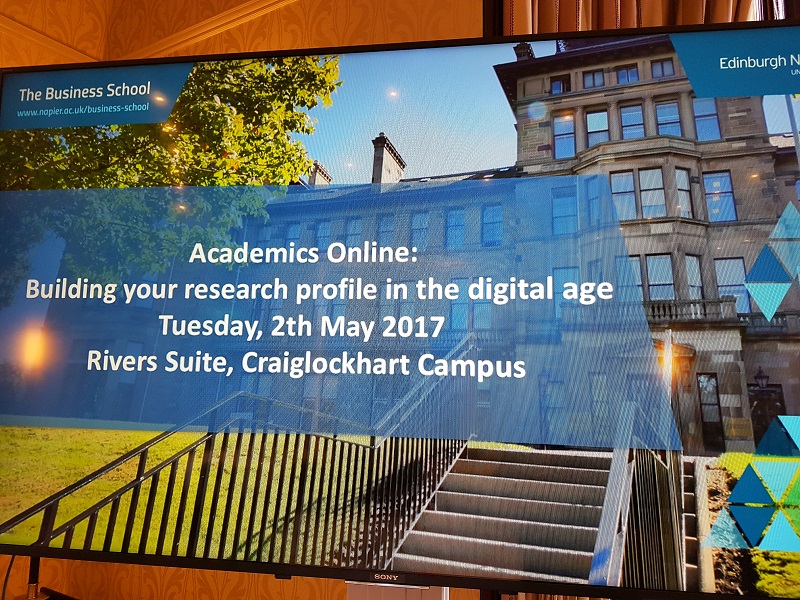Last week I spoke at the “Academics Online: Building your research profile in the digital age” workshop to be held at Edinburgh Napier University’s Craiglockhart Campus. The event was organised by Dr Ivana Rihova and Dr Nathalia Tjandra, thanks to support from the Research and Innovation Office (RIO) and the Researcher Development Fund 2016/17.
I was the first of four speakers and shared an overview of how academic reputations are built – including the use of altmetrics. When I prepared my presentation, I worried that the altmetrics portion might be too basic, but it seems that most of the delegates were unfamiliar with what they were (or how to use them). It made for some interesting questions and discussion at the end of my talk though – and hopefully, it has given the audience something to think about as they continue to build their own reputations online.
In addition to altmetrics, my talk shared information about different tools that can be used to create online profiles and why they should be used. I also tried to make the point that you don’t have to use all of the tools. And, in fact, it is better to use fewer tools well and with confidence than it is to use every online tool under the sun with uncertainty.
The other speakers at the workshop were:
Nick Blackbourn, Content Officer at Edinburgh Napier University, who discussed practical ways and specific tools for building an online audience. He talked about using a “work out loud” approach and encouraged participants to tweet along as he spoke.
Vanessa Heggie, University of Birmingham, talked about the risks and rewards of social media. She shared some insights into different tactics, hacks, and coping mechanisms we could use to make sure we present ourselves (and our research) well in public—whilst having the most positive experience online that we can.
Steven Vass is the Scotland Editor of The Conversation, an original and essential outlet for comment and analysis. He was the last speaker of the day and shared with us ideas of how to turn our research into articles that will open eyes and reach the widest possible audience. He encouraged short, 100-word pitches to start with – and got me personally thinking about my own submission. (Which won’t happen until after I submit my thesis!)
You can view the slides from my presentation below or on my SlideShare account here.
